Musician Spotlight: Sérgio Coelho, Principal Clarinet
- Posted by - American Youth Symphony
- on -
- 0 Comment
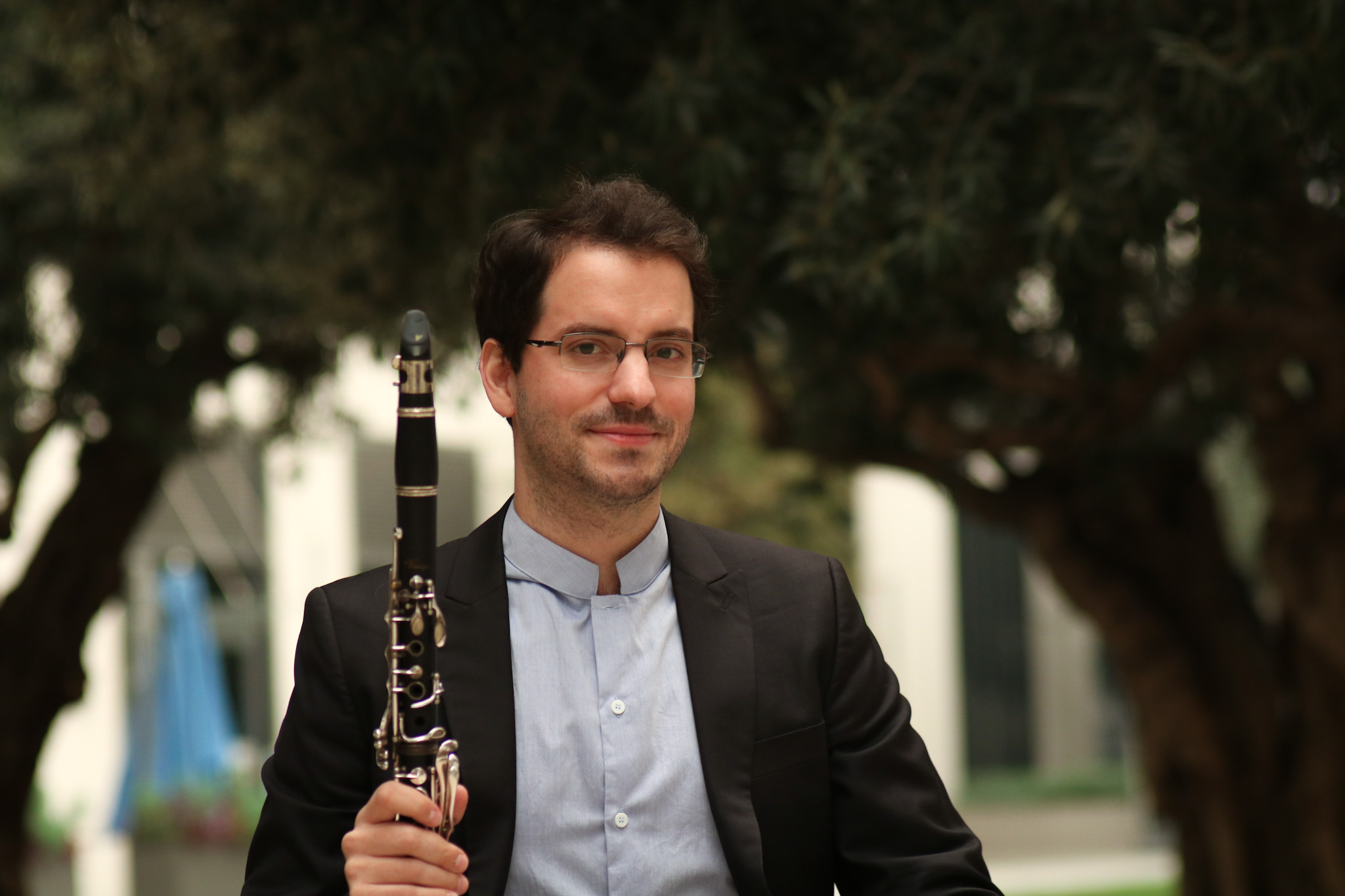
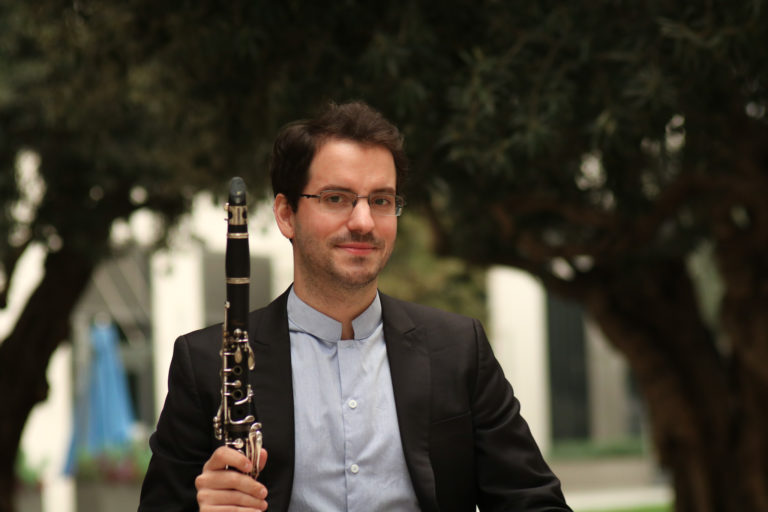
When talking to Principal Clarinet, Sérgio Coelho, you can tell instantly how passionate he is about music, playing clarinet, and taking advantage of the opportunities that come his way. He received years of musical experience and training in his home country of Portugal and now resides in L.A., where he earned three degrees at USC, and has played with AYS for the past six years. Sérgio’s talent doesn’t stop at playing, but continues through his love for teaching. Learn more about Sérgio’s incredible story by reading his interview below.
Tell us about yourself! Where are you from?
I grew up in Portugal and started playing music when I was very young. My mother had the idea that I start learning music because some members of her family were amateur musicians and she thought it would be nice for her children to learn how to play music. I started taking piano lessons and was soon introduced to the clarinet in Sociedade Filarmónica Vizelense, a music academy near my hometown.
I didn’t know much about music or the clarinet at all before I started playing – besides hearing my family members play during gatherings or at church. I actually didn’t choose the clarinet. The president of the music academy decided that I would be a clarinet player because they needed more clarinet musicians in the wind band. Portugal has a huge wind band culture, which the president of the school wanted me to be a part of. The rest is history, and I’m so very happy that I play the clarinet now!
What makes the clarinet interesting to you?
Although I was pushed into playing the clarinet, I don’t regret it at all. I really love the instrument and can identify myself with it. I really enjoy how the clarinet is a flexible instrument that can portray so many colors of music. It’s also flexible in the way that it is used in the orchestra. For example, it’s often used to portray many different things like emotions, animals, elements of jazz music, the list goes on. I also love how connected it is to other cultures and their cultural music. Clarinet is broadly used in a lot of folk, latin, klezmer, Turkish, Greek, and even my home country in Portuguese music. It’s an instrument that really comes from the roots of people and cultures. I also appreciate the range that the clarinet has. I think the instrument sounds similar to the human voice, but can also be used in a variety of ways. I love exploring its flexibility!
When did you know that you wanted to pursue a career in music and the clarinet?
In 7th grade I attended a more prestigious music school (ARTAVE) with the encouragement from my parents. My parents truly believed that I was musically talented, and wanted me to try out this new school environment. The school only allows you to enter at either 7th or 10th grade, and only has one class per year of around 20 kids who need to audition. The year that I auditioned, they only accepted two clarinet players.
The change of pace was difficult to adapt to at first. We had all of our academic classes for a few hours in the morning, and then after lunch had only our music classes. After a few months I started to adapt and take my music playing more seriously. When I reached 9th grade, I decided to stay at the school because I was ready to be more committed to my music training and aim for having a career in music.
Upon graduating high school, I went to Lisbon to pursue my Bachelor’s Degree in Clarinet and Orchestra Performance at the National Academy of Advanced Orchestra Studies, and graduated after three years. I didn’t know what was next on my playing journey, so as I was doing research and trying to figure it out, I taught music full time at a school in the south of Portugal.
During my bachelor degree, I attended a music festival in Sweden a couple of times and ended up meeting the clarinet professor at USC, Yehuda Gilad. I really enjoyed learning from him in the masterclasses and thought it would be a great idea to study more with him. I had never been to the United States before and barely knew English, but it seemed like a great opportunity and next step in my career.
I auditioned for USC virtually and was accepted for Fall 2014. I quickly figured out scholarships, travel plans, where I would live, and embraced this new adventure in California. My family was very supportive, and I definitely would not have gone if they didn’t believe in me.
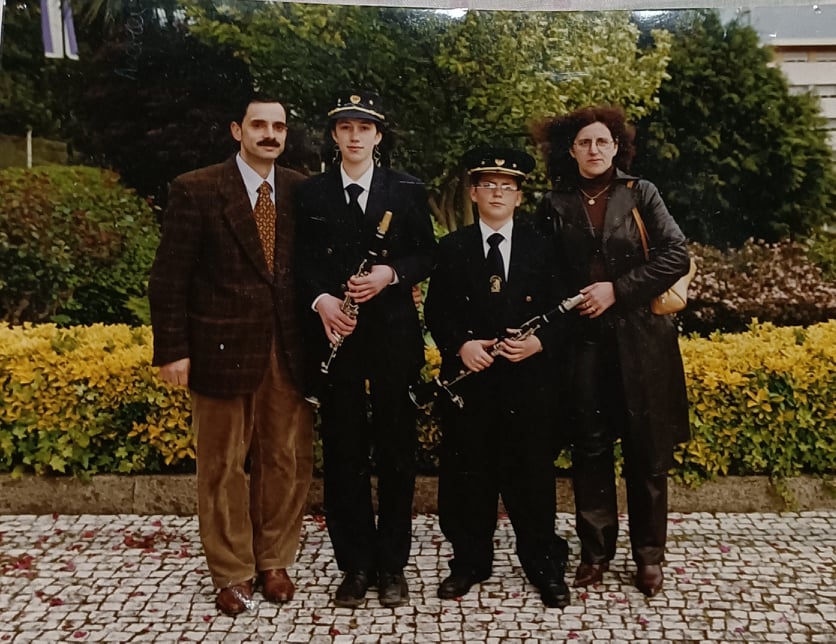
Tell me about your experience at USC! What did you learn about yourself?
I loved my time at USC. I mostly came because I wanted to study with Yehuda Gilad. Yehuda has this ideology with his teaching where he focuses on helping his students become original musicians, not exact copies of other musicians. He helped me discover my inner voice and purpose within music. I learned how to tell my own story when I play music, not someone else’s story. I am very lucky that throughout my academic training all my clarinet teachers were moved by these philosophies. I’m still learning more about myself and my relationship to music, but it’s been so rewarding so far.
I also really liked how USC offered a broad variety of other classes under the realm of music. For example, I took classes in Renaissance music and hip hop that ended up being really important to me. Taking the history of hip hop class helped me to better understand American culture and the resilience of people. It was inspiring to learn about the first hip hop artists and how they’ve shaped humanity, culture, and built community through music.
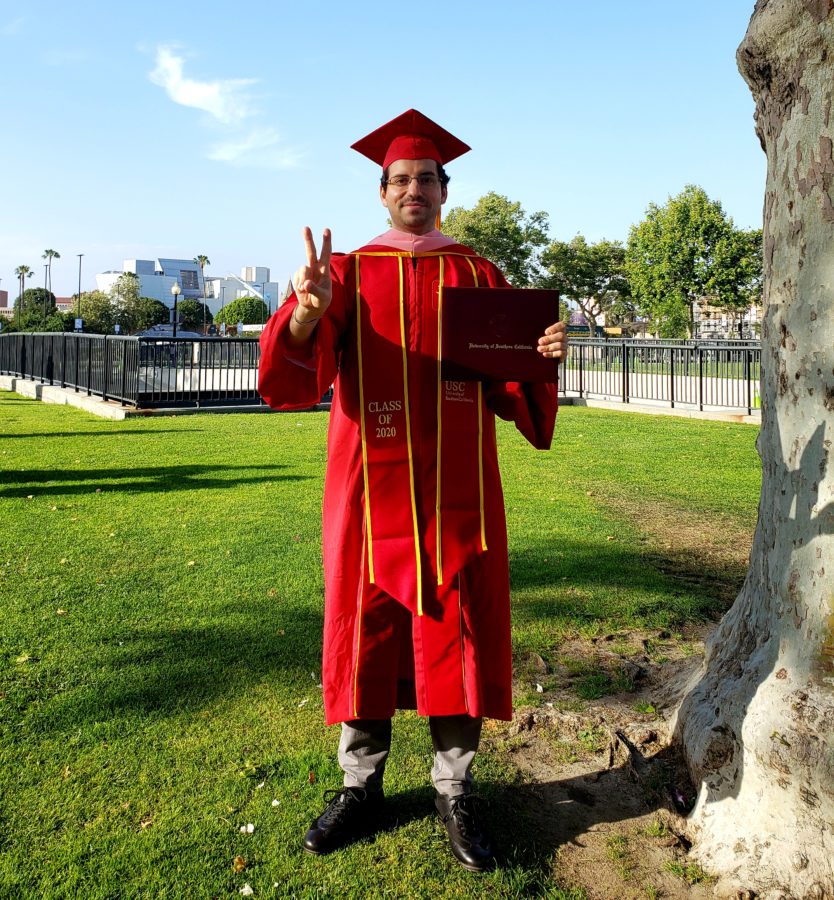
All in all, I ended up earning three degrees at USC! I originally wanted to complete my master’s first, but had to complete a graduate certificate before I could. After two years of my graduate certificate, I started my masters program, and then two years after that started my artist diploma.
I just walked in my first graduation this past June 2021. It was special because it was my first time celebrating a graduation ever, and it was the first graduation held at the Los Angeles Coliseum in the last 70 years. I’m really happy that I ended up walking and participating. It ended up being a really memorable day for me.
When did you hear about AYS, and how does it fit into your story?
I learned about AYS through my studies at USC and joined during the 2015/16 season. I was second clarinet at the time, and became principal clarinet after Maestro Izcaray was named Music Director.
AYS is really special to me. I believe that it is really a gift to have an organization like AYS in Los Angeles. It offers so many fantastic opportunities that really are informative for the young musicians in the orchestra. AYS is a professional training orchestra that operates and looks like a professional orchestra, and playing in AYS taught me a lot about the inner-workings of an orchestra and playing with an ensemble.
What are your most memorable moments being in AYS?
So many things have been special and memorable it is hard to say! There’s so much great repertoire that we’ve played, it’s hard for me to pinpoint exactly what concerts are the most special to me. Having the opportunity to play John Corigliano’s Clarinet Concerto in 2018 was definitely a career highlight.
However, what I think is really great about AYS is that we always play in really renowned concert halls. Having the opportunity as a young musician to perform in those settings just speaks for itself. Anytime I have an opportunity to set foot in one of the big halls is a dream come true for me. As a player, I really do the best I can to respect the space.
I would also say that before AYS I never played music from movies, so having the opportunity to play iconic scores from great Hollywood films has been another highlight. It’s a great way to play repertoire that wouldn’t normally be played, and it requires very different preparation, which is really good training. I have always loved film music and had the dream of one day recording for motion pictures. I also think that film music concerts are a nice way to bring more people together who wouldn’t normally come to a concert hall setting.
Being with AYS now for six seasons, how do you think AYS has prepared you for a professional career in music?
AYS helped me to apply concepts that I learned at school to playing with a large ensemble. I also learned so much about how orchestras work in America, which has been really vital to me. From playing some of classical music’s great repertoire, to music scores, and music by contemporary composers, AYS has really prepared me for how I see my professional career – which is being involved with everything. I came to realize that I love to do and play everything. I don’t know where I’m going to be one year from now, but I do know that I would like to be involved with many different things, and I think AYS has helped me to understand that aspect of myself. I am a stronger musician now because of my time playing with AYS.
What have you found to be different in the classical music scene between the U.S. and from Portugal or the rest of Europe?
I think there is more opportunity in America. In Portugal, there are fewer opportunities to play so it is a lot harder for everyone to find their place. One of the things I like the most about Los Angeles is that I’m not confined to one or two things but can do a spectrum of things.
For perspective, this month I’m playing a ballet, recording some chamber music pieces for the Sunset Chamber Music Festival, playing a young composer’s piece, recording a wind quintet for composer Todd Mason, recording a duet for bass clarinet and bassoon for the Hear Now Festival, and then before all of this was the concert with AYS that we recently filmed at Royce Hall. Even yesterday a composer contacted me about recording for a short movie. So, there are many different opportunities and offerings that are really special and unique that allow me to play my music.
What has been an unexpected but meaningful experience you have had as a musician?
Teaching has touched me and been very meaningful during my journey. I’ve been involved with a few nonprofit organizations in Los Angeles including Harmony Project, Young Musicians Foundation, YOLA, and the Jumpstart program at Colburn. The nonprofits are all a little different, but they all have one main purpose: to bring musical opportunities to those who wouldn’t normally have the opportunity to access it.
When I was teaching with the Harmony Project prior to the pandemic, I was part of a team that started the music program at one of the schools we served. We started it from scratch, which was challenging at times, but so rewarding! I got to witness the program and students grow throughout the year, and will never forget when one of the school teachers commented, “wow, the students who started to have music lessons started to also improve their academic work. Music has made a huge difference.” I feel very special that I helped make the students and teachers’ school year a little better.
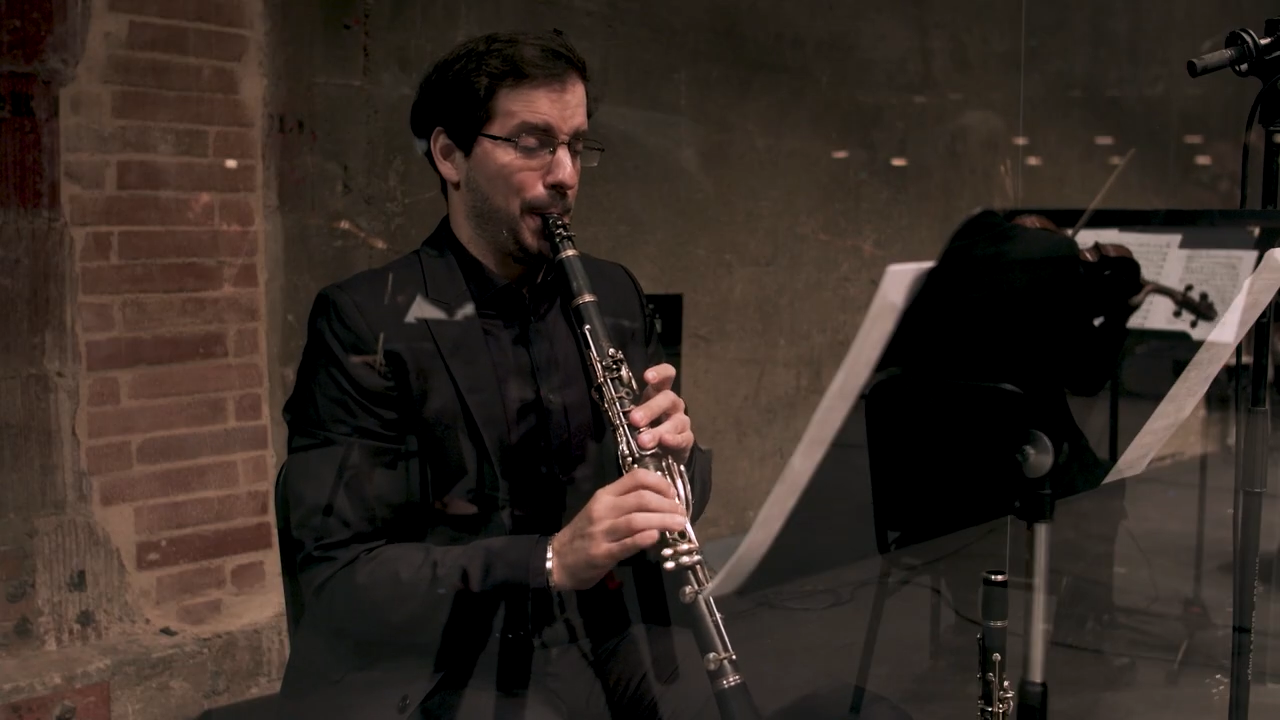
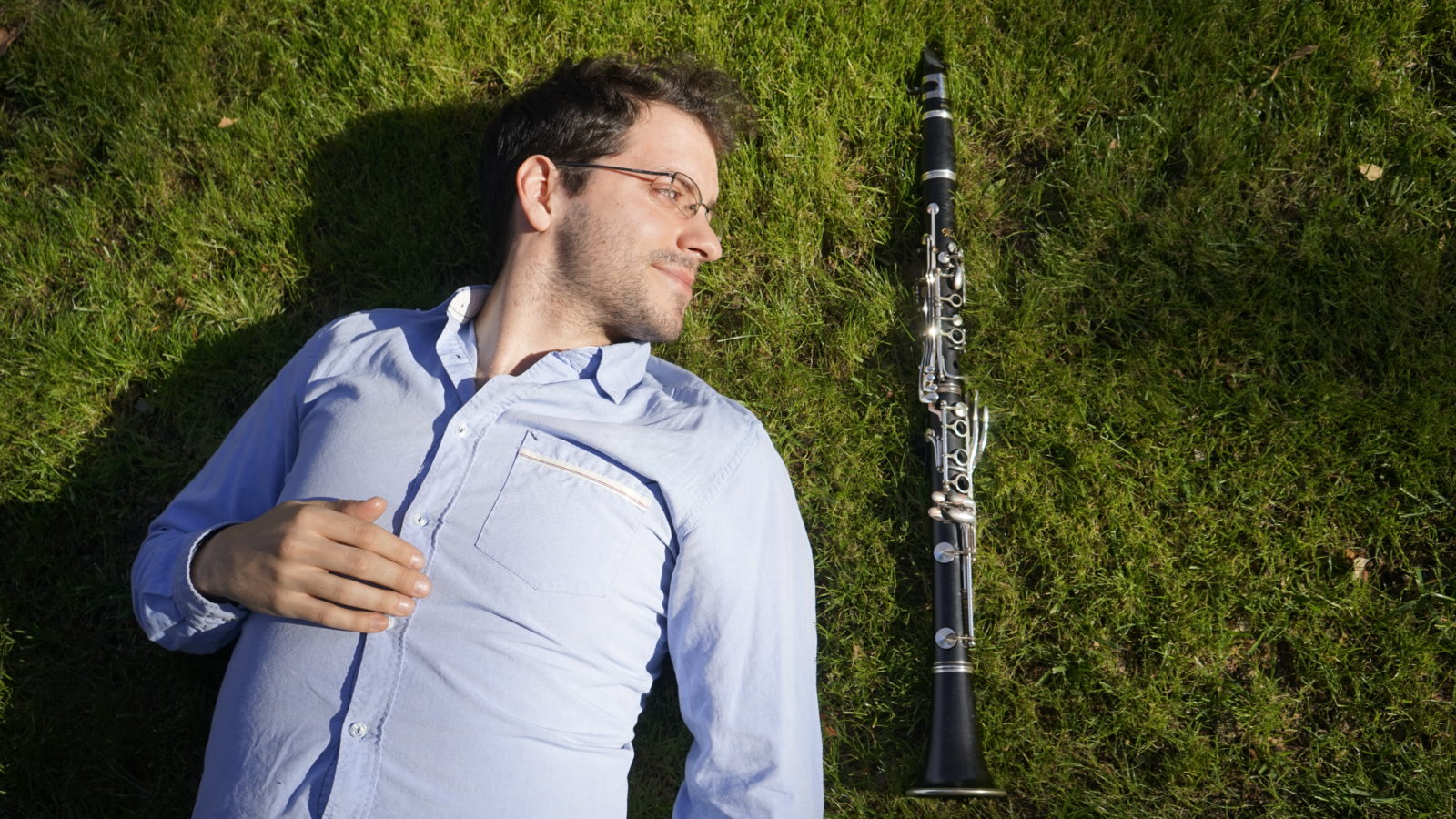
What advice do you have for young musicians wanting to advance their musical career?
My advice would be to not be shy! Just go for it and trust yourself. Look for your own opportunities, and try to see things with a smile even if things don’t go the way you want and try to learn from your mistakes. Life becomes a lot harder when you’re not able to look at the good things. Give it all when you play.
I also think that it is very important to be philosophical in the way that we play music, because I think we can get more in depth with the true meaning of music and the arts in general.
For me, these four things really contributed to my music career. All of which I’m so very grateful for.
- My family has always been super supportive and believed in me more than I did myself. I hope I can continue to make them proud. If it wasn’t for them, I wouldn’t be here today.
- The support of my main clarinet teachers, Ms. Luísa Marques, Mr. Nuno Silva and Mr. Yehuda Gilad who started teaching me in a more philosophical way. They would ask me questions like, what do you want to say when you play music, what do you think the composer is trying to say, and what do you think your purpose in this piece is? These questions have helped me to discover my own inner voice and build a deeper connection to the music I’m playing and ultimately the audiences.
- Once I started playing in larger ensembles I realized the magic that happens when we all play together. From there, I knew I wanted to be part of something that felt special by making music.
- The applause at the end of concerts is also so encouraging. I’m always so grateful to have an audience cheering for something that they liked. I remember being very young and feeling an indescribable emotion by the end of concerts which I look for every time I am on stage.
About Sérgio:
A native of Portugal, Sérgio was awarded a Bachelor Degree in Clarinet and Orchestra Performance by the National Academy of Orchestra studies of Metropolitana (Lisbon). In 2014, Sérgio moved to Los Angeles to attend the University of Southern California where he completed a Graduate Certificate and a Master of Music Degree in clarinet performance, under the tutelage of Mr. Yehuda Gilad. During his MM degree he became a fellow of the Latin Grammy Awards Foundation being awarded a scholarship.
He can be found performing regularly with orchestras, such as, Auckland Philharmonia Orchestra, Lisbon Metropolitan Orchestra, Kaleidoscope Chamber Orchestra, Santa Barbara Symphony and the Los Angeles Sinfonietta. Sérgio has been featured in several festivals and music series and some of these include, Chamber Music Palisades, South Bay Chamber Music Society, Sunset ChamberFest, 61st Annual Los Angeles County Holiday Celebration, Mason Home Concert series, Mainly Mozart Festival and Camerata Pacifica.
He has been awarded prizes in competitions such as: Semifinalist, 2018 Jacques Lancelot International Clarinet Competition (Japan), 1st Prize, American Youth Symphony Concerto Competition (CA), 3rd Prize, 8th Saverio Mercadante International Clarinet Competition (Italy); 1st Prize, USC Concerto Competition (CA), 1st Prize, Inatel Prize – National Academy of Orchestra studies of Metropolitana (Portugal).
Sérgio is the principal clarinet of the American Youth Symphony, the Opera NEO Festival and maintains clarinet studios collaborating with the Young Musicians Foundation and the Colburn School of Music (Jumpstart Program). Recently Sérgio was awarded a prestigious Artist Diploma Degree at USC.
If you want to support AYS and the education of young musicians, consider making a donation today. Learn more about our Champion program and sponsoring a musician on our website or by emailing development@AYSymphony.org.

